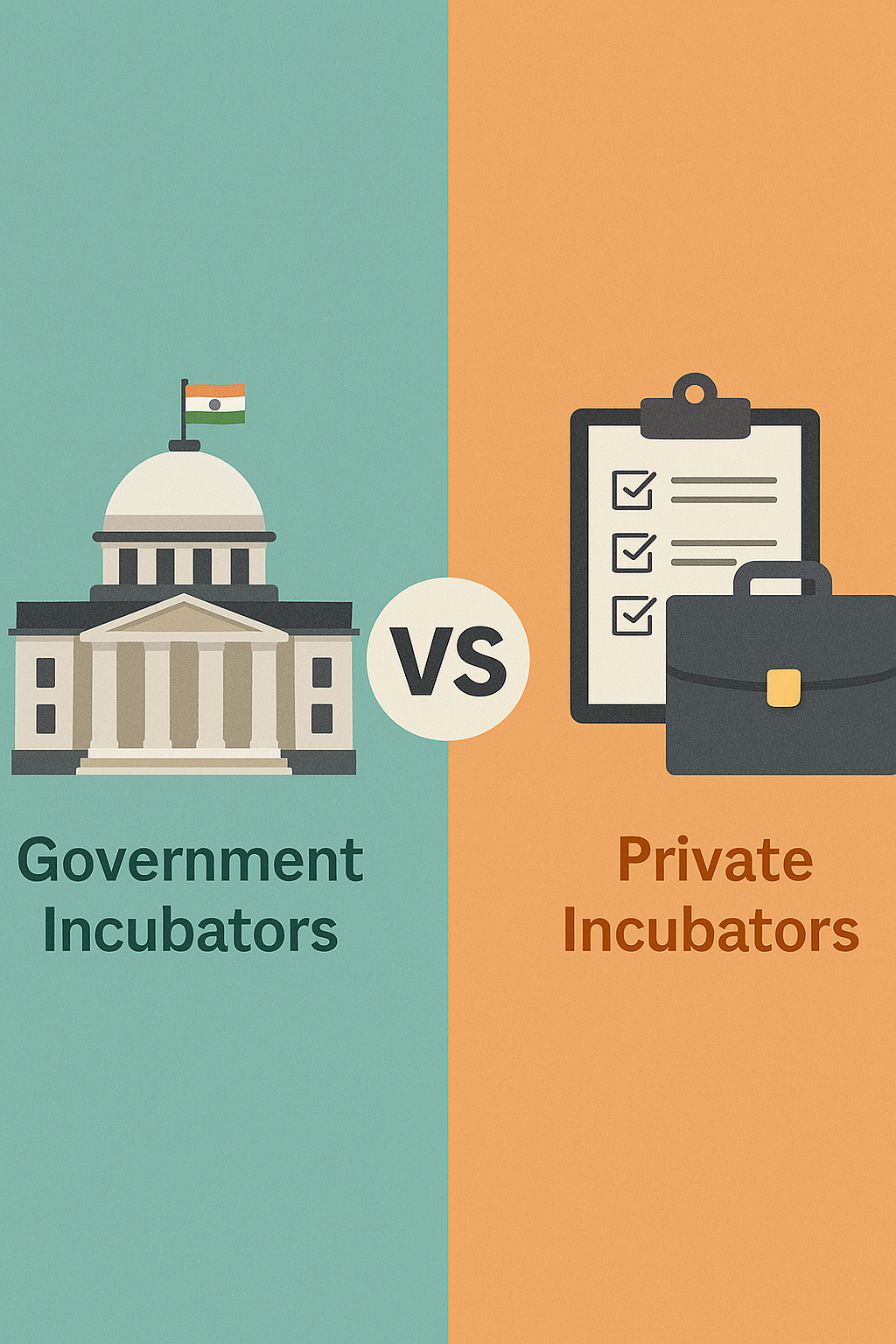Summary Points:
- India has 400+ incubators but many lack consistent funding, deep market connections, or global exposure.
- Public-private partnerships (PPPs) bring together government resources and private sector expertise.
- PPPs enhance startup access to mentorship, investment, infrastructure, and pilot opportunities.
- Such collaborations help incubators reach underserved regions and sectors.
- Successful PPP models already exist but need wider adoption across the country.
India’s incubation ecosystem is growing rapidly—driven by policies like Startup India, BIRAC, TIDE 2.0, and NIDHI. But on the ground, many incubators face similar challenges:
- Limited funding beyond initial government grants
- Shortage of experienced industry mentors
- Weak corporate networks for partnerships and pilot testing
- Difficulty attracting venture capital
- Poor integration between academia, startups, and the market
This creates a gap between policy and impact.
The Solution: Public-Private Partnerships (PPPs)
When incubators team up with corporate partners, foundations, or investors under a structured government framework, everyone wins.
These partnerships:
- Bring co-investment opportunities
- Create job-ready innovations aligned with industry needs
- Enable pilot testing and real-time feedback
- Build scalable models faster
- Ensure long-term sustainability of incubation centres
What Public Sector Brings to the Table
- Funding and infrastructure through central or state schemes
- Policy backing and recognition via Startup India, MSME, DST, MeitY, etc.
- Access to government buyers for public health, sanitation, agri-tech, and edtech solutions
- Reach into rural and Tier 3 regions
- Academic networks with research and student talent
What the Private Sector Brings
- Real-world experience in building and scaling businesses
- Technical mentorship from product leaders, engineers, CXOs
- Market validation channels—B2B connects, testing labs, customers
- Access to capital—angel networks, venture capital, corporate social responsibility (CSR) funds
- Brand trust that attracts better startups to incubators
Examples of Successful PPP Incubators in India
1. WE Hub + Global Corporates (Telangana)
Supports women-led startups through public funding and private co-mentorship from Facebook, Salesforce, and T-Hub.
2. C-CAMP + BIRAC + Pfizer
Supports biotech startups by combining government research funding with private pharma support.
3. AIC-Pinnacle + Bajaj Auto Ltd
Automotive-focused incubation centre in Pune, combining academic mentoring with real-world manufacturing exposure.
4. T-Hub + State Govt + Microsoft & Intel
Creates one of India’s most vibrant incubation environments by integrating startup policy with deeptech industry expertise.
Why PPPs Matter More Now Than Ever
India aims to become a $5 trillion economy and a top-3 startup hub globally.
But that won’t happen with isolated incubators. We need:
- Scalable, self-sustaining incubation centres
- Sector-specialized mentorship
- Real pilot opportunities, not just prototypes
- Speed, flexibility, and market intelligence—which only private players can offer
Government alone cannot meet these demands. And private players need the enabling platform public programs provide.
How to Build More Effective PPP Models
- Clearly defined roles and shared outcomes
- Co-funded programs between ministries and corporate CSR arms
- Incentives for corporates to contribute beyond branding
- Third-party facilitation by ecosystem builders (e.g., CIIE, Social Alpha, FICCI)
- National registry of PPP-enabled incubators for transparency and collaboration
Impact on Founders: What’s in It for Startups?
When incubators are powered by PPPs, startups get:
- Better funding readiness
- Faster go-to-market pathways
- Validation from both government and industry
- Higher investor interest
- More relevant product-building experience
For example, a medtech startup incubated under a DST-funded lab, mentored by a hospital group, and co-funded by a pharma CSR unit will scale faster and safer.



